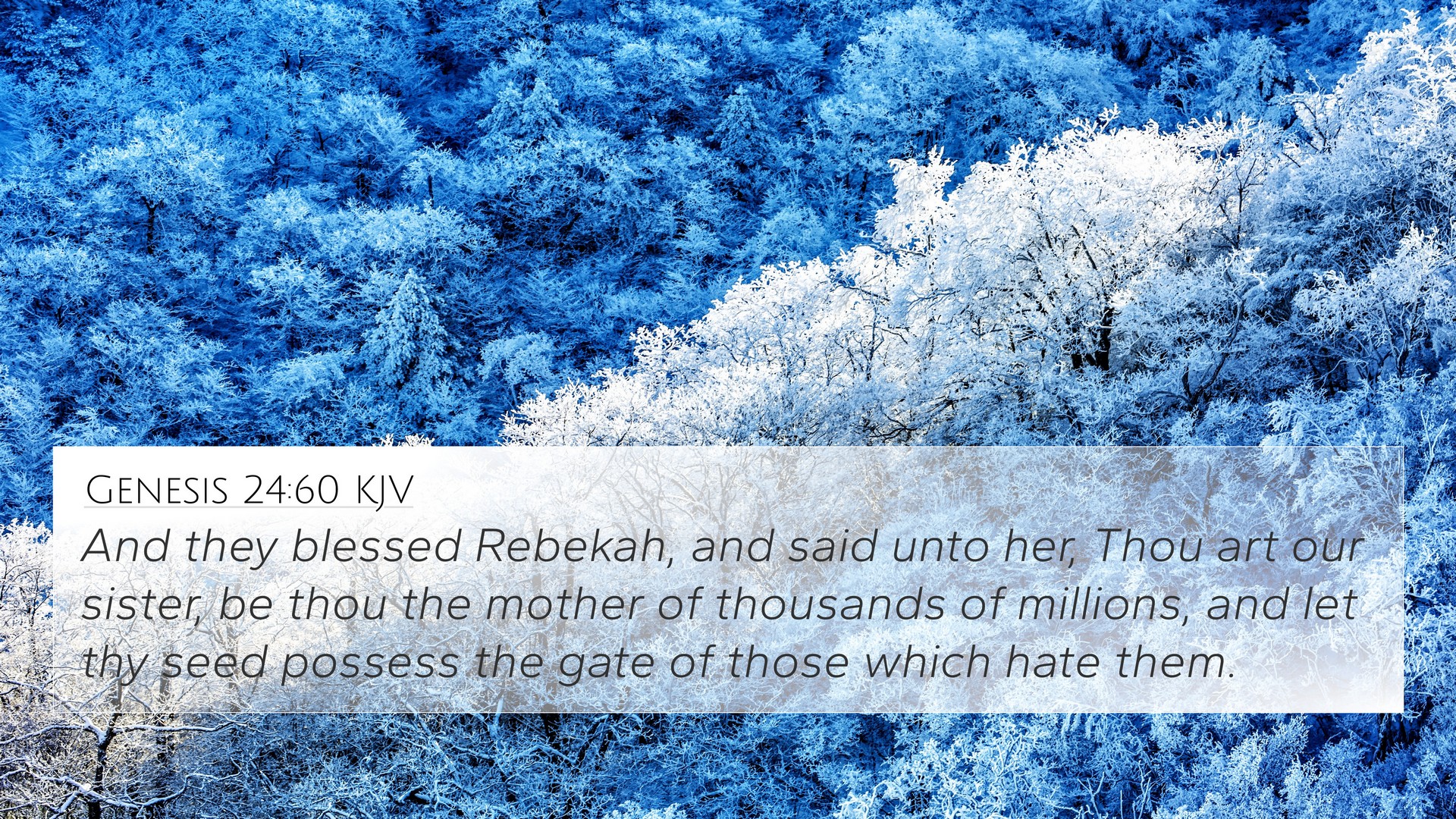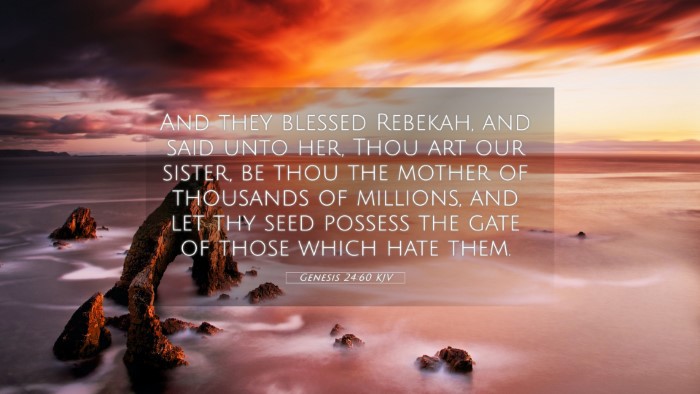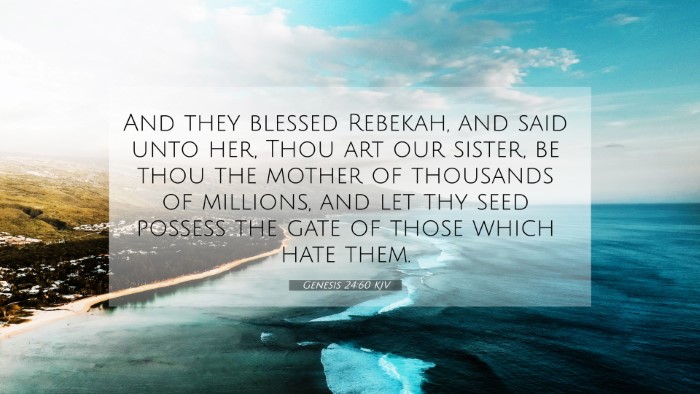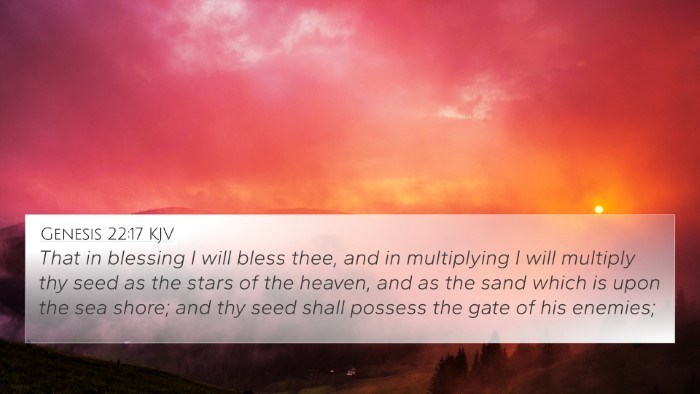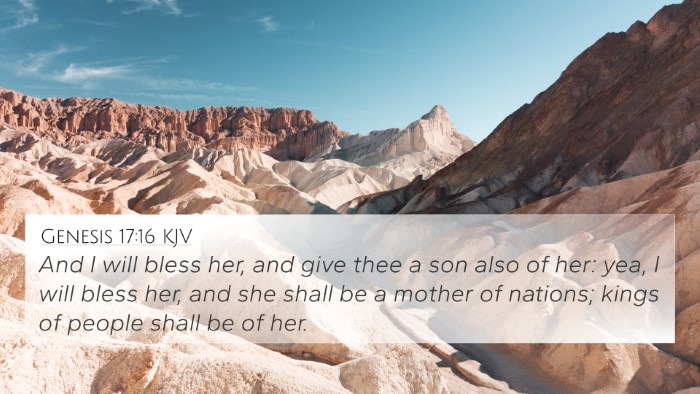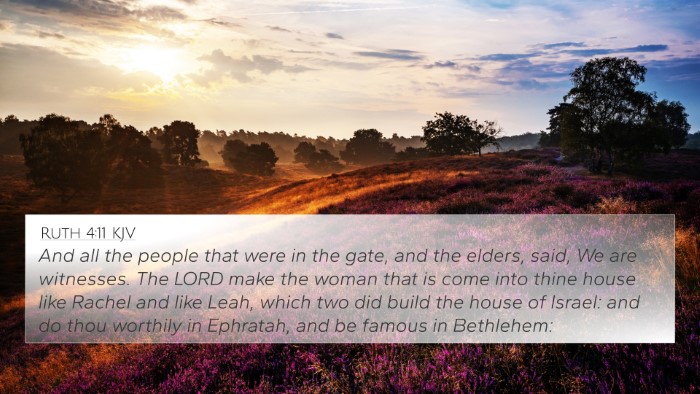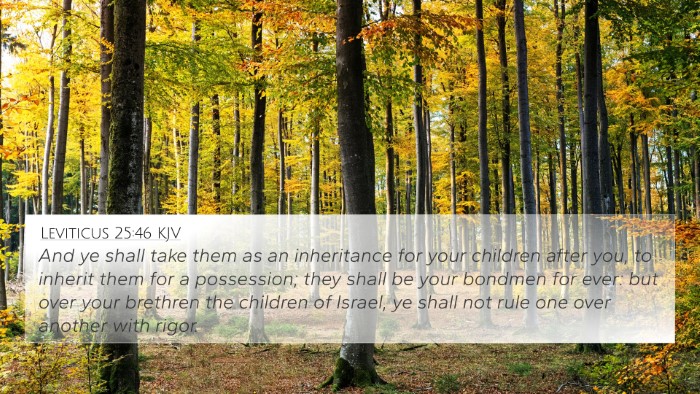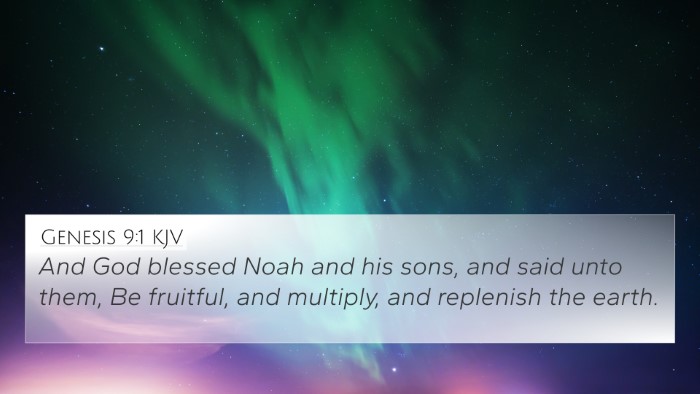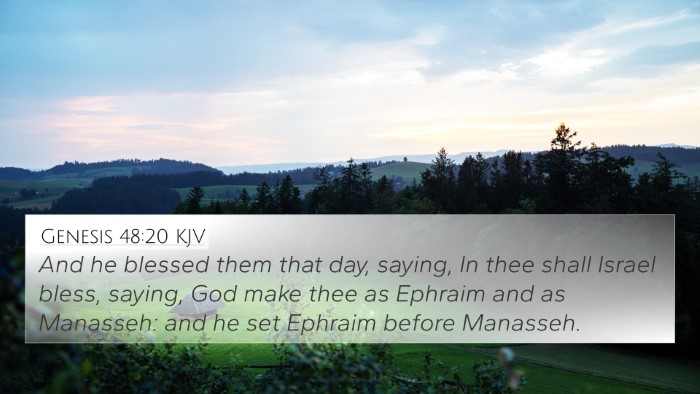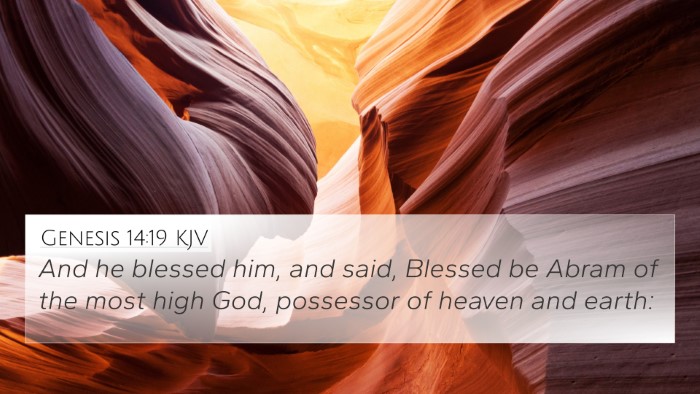Meaning and Interpretation of Genesis 24:60
Genesis 24:60 states: "And they blessed Rebecca, and said unto her, Thou art our sister, be thou the mother of thousands of millions, and let thy seed possess the gate of those which hate them." This verse plays a significant role in the narrative of Rebecca's marriage to Isaac and highlights themes of familial blessing, covenant promise, and the divine purpose in relationships.
Contextual Overview
The context of Genesis 24 describes Abraham's servant being sent to find a wife for Isaac from his own relatives rather than from the Canaanites. This passage encapsulates a moment of blessing which is pivotal not just for Rebecca, but for the fulfillment of God's covenant with Abraham.
Commentary Insights
-
Matthew Henry:
Henry emphasizes the blessing upon Rebecca, noting it signifies the importance of her role in the Abrahamic lineage. The blessing also reflects the hope and trust of her family in God's promised future. They anticipate that Rebecca will bear many descendants who will inherit God's blessings, reinforcing the covenant established with Abraham.
-
Albert Barnes:
Barnes highlights that the phrase "mother of thousands of millions" alludes to the numerous descendants that Rebecca will have. This ties into the broader promise given to Abraham in Genesis 17:4-5, where God assures Abraham that he will be the father of many nations. This indicates that the covenantal blessings will continue through Rebecca's line.
-
Adam Clarke:
Clarke provides an in-depth look at the cultural implications of blessings in Ancient Near Eastern contexts. He notes that blessing a daughter upon her departure to a husband is a significant tradition, inferring the warmth and hope from her family. Clarke also draws connections to Genesis 22:17, which speaks of Abraham’s descendants being as numerous as the stars, showing continuity in the promise of multiplication.
Thematic Connections Through Cross-Referencing
Genesis 24:60 can be effectively understood by cross-referencing it with other relevant Bible verses. These connections further illuminate the text's themes and meanings.
Bible Verse Cross-References
- Genesis 12:2-3: God's initial promise to Abraham that his name will be great and he will be a blessing influences the expected outcomes of Rebecca's descendants.
- Genesis 17:4-5: Reinforces God's covenant with Abraham regarding his multitude of descendants, tying directly to Rebecca's future.
- Genesis 22:17: Emphasizes the same promise of numerous descendants as the stars, of which Rebecca is now a part by marriage.
- Exodus 1:7: Speaks to the multiplication of the Israelites in Egypt, stemming from the covenant promise highlighting its fulfillment through Rebecca's lineage.
- Psalms 127:3: Discusses children as a heritage from the Lord, reflecting on the blessings placed upon Rebecca and her future family.
- Galatians 3:29: Asserts that those who belong to Christ are Abraham's seed, reinforcing the significance of Rebecca in the New Covenant.
- Hebrews 11:11: Mentions faith in relation to Sarah, contributing to the overarching narrative of faith and promise in the lineage of Abraham.
Significance of Blessings
The blessings in Genesis 24:60 serve not only as a personal farewell to Rebecca but also as a divine forecast of the role she will play in God's unfolding plan. The act of blessing implies a transfer of protection, success, and abundance, vital in the context of the ancient Near East and God's covenant.
Inter-Biblical Dialogue
This verse also opens gateways for thematic Bible verse connections across both Old and New Testaments. It illustrates how the legacy of faith and divine promise weaves through generations, culminating in the lineage of Jesus Christ.
Conclusion
Genesis 24:60 richly illustrates the blessings received by Rebecca and the profound implications of her role in the ancestral promise of the Israelite people. Through cross-referencing and understanding the scriptural context, the significance of this verse permeates deeper theological themes regarding covenant, family, and God’s providential care through lineage and heritage.
